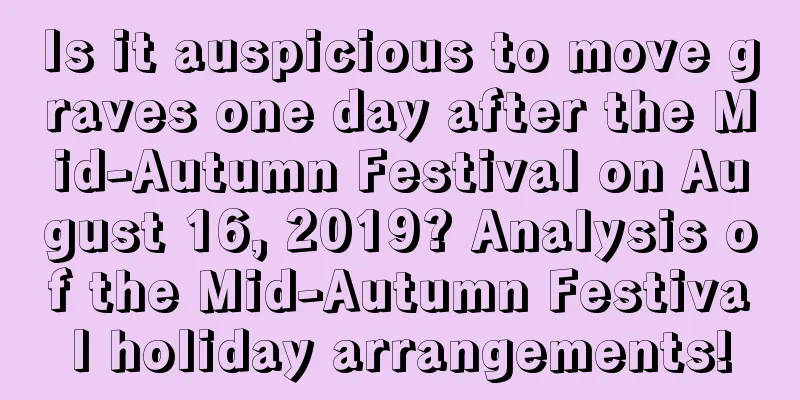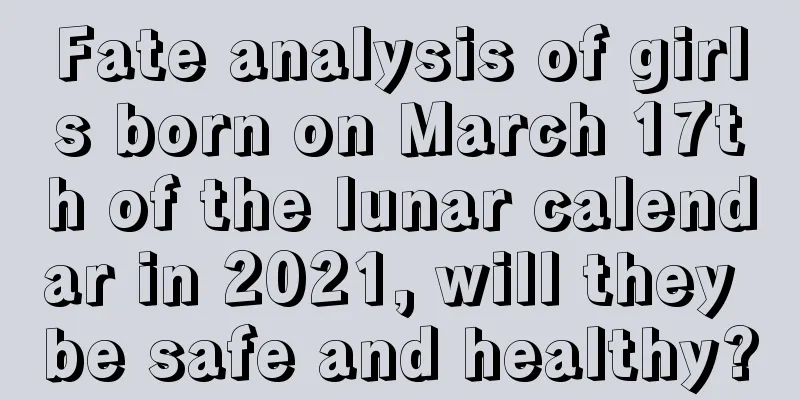How is the sixth day of the first lunar month in 2021? Is it good to pray on that day?

The benefits of praying at different times are different. Some times are good, and some times are bad. So, let’s take a look at whether the sixth day of the first lunar month in 2021 is a good day? Is it good to pray on that day? All things are difficult at the beginning. Is the arrival of 2021 a new test or opportunity for most people? Let’s start to understand from the first month of the lunar calendar, and pay attention to the special content of the first month of 2021 on Shuimoxiansheng.com to get more fortune reminders.How is the sixth day of the first lunar month in 2021? Is it good to pray on that day?The sixth day of the first lunar month of the year 2021 (Lunar calendar)Wednesday, February 17, 2021 Aquarius (Gregorian calendar) 【Today’s lunar calendar is suitable】 Seeking medical treatment in a broken house From the above [Today’s Almanac], it can be seen that there is no option to pray for blessings on that day, so it is not recommended to pray for blessings. Should we send away the poor ghost on the sixth day of the first lunar month?The sixth day of the first lunar month is also known as "Horse Day". Since the Qin and Han Dynasties, the traditional view is that the first day of the first lunar month is the Chicken Day, the second day is the Dog Day, the third day is the Pig Day, the fourth day is the Sheep Day, the fifth day is the Ox Day, the sixth day is the Horse Day, and the seventh day is the Human Day. According to Chinese folklore, this is because when Nuwa created all living things, she first made the six domestic animals and then humans, so the first six days of the lunar month are all days for the six domestic animals.In "Jin Gu Garden Records" by Li Yong, a writer of the Tang Dynasty, it is said: "The son of Gaoyang was thin and frugal. He liked to wear tattered clothes and eat gruel. When people made new clothes for him, he would tear them and burn them before wearing them. People in the palace called him the Poor Son. He died in an alley on the last day of the first lunar month. Nowadays, people make gruel and throw away tattered clothes. On this day, people offer sacrifices in the alley to send off the poor ghost." According to "Sui Shi Guang Ji" by Chen Yuanliang of the Song Dynasty, citing "Wen Zong Bei Wen", it is recorded: "In the time of Emperor Zhuanxu Gao Xin, a son was born in the palace. He did not wear complete clothes, so people in the palace called him the Poor Son. Later, he died on the last day of the first lunar month. He was buried in the palace, and people said to each other, "Today we are sending away a poor man." ” According to Chinese folk legend, the poor ghost was the son of the ancient emperor Zhuanxu. He was weak and short, and liked to wear tattered clothes and eat porridge. Even if he was given new clothes, he would tear them or burn holes in them before wearing them. Therefore, everyone called him "the poor son." On the last day of the first lunar month, Qiongzi died. The palace servants buried him and said, "Today we send Qiongzi off." From then on, Qiongzi became a poor ghost that everyone feared. According to Mr. Qian Zhongshu's "Guan Zhui Bian", the custom of sending away "poor ghosts" became popular among the people in my country during the Tang Dynasty, but they only called them "ghosts" instead of "gods". After the Ming and Qing Dynasties, the "poor ghost" was revered as the "poverty god". No one can tell whether it is a god or a ghost. The custom of sending away poverty was quite popular in the Tang Dynasty. The great writer Han Yu once wrote an essay "Sending Away Poverty", in which he said: "(The host) bowed to the poor ghost three times and said to him, 'I heard that you will be leaving soon. I have the financial support to send you off. Are you interested in leaving?'" The Tang poet Yao He also wrote poems "Three Poems to Send Away Poverty on the New Year's Eve", the first of which says: "Every year on this day, I pour wine and worship in the street." Looking at thousands of households and doors, everyone is sending away poverty. From the last two sentences we can see that the custom of sending away poverty was quite common at that time. After the Song Dynasty, the custom of sending away poverty remained popular. In the Qing Dynasty, Yu Quyuan's "Three Notes from the Tea Fragrance Room: Sending Away the Poor Ghost" recorded the lyrics of people from the previous dynasty: I advise the young man and the young lady to send away the poor ghost with nothing. |
Recommend
Is March 23rd of the lunar calendar 2019 an auspicious day for a haircut?
Introduction: Sometimes you need to choose an ausp...
Can I get a haircut on February 19th of the lunar calendar in 2018? How are you doing?
Introduction: Haircutting is an activity in people...
Query the location of the God of Wealth on the first day of the third lunar month in 2018
The Fortune Teller website has carefully compiled...
Is February 13th of the lunar calendar in 2019 a suitable day for traveling? What is the hexagram for today?
Introduction: According to our customs, we usually...
Analysis of the 14th day of the 12th lunar month in 2021. Is it a good time to pick up the car on that day?
The time to pick up the car is different and the q...
Is it auspicious to get a haircut on April 27th of the lunar calendar in 2021? Is it a good day?
The fourth month of the lunar calendar officially ...
Is December 16th of the twelfth lunar month in 2021 a good or bad year? What are the auspiciousness and inauspiciousness of each hour?
The twelfth month of the lunar calendar is the end...
Is it a good idea to get a marriage certificate on Chinese Valentine's Day in 2022? Should I give my boyfriend a gift on Chinese Valentine’s Day?
Is it a good idea to get a marriage certificate on...
Feng Shui "Chef" teaches you how to prepare delicious love
Introduction: The lucky spot in love may be in a ...
Do you often walk at night? You must know these taboos!
Introduction: In daily life, there are always som...
Is it a good idea to get a haircut on the seventh day of the third lunar month in 2018? Recommended auspicious days for haircuts
Although getting a haircut is a common thing nowad...
What is the Grain in Ear season and what is it for? What to do on Grain in Ear Day?
Grain in Ear is one of the 24 solar terms. So, let...
What is the fate of a boy born on February 24, 2020, and what zodiac sign does he belong to?
Introduction: Children born on different days have...
Is it a good day to pick up a new car on February 14th of the lunar calendar in 2020?
The arrival of the apricot moon paints the earth ...
Is it a good idea to pick up a new car on March 26, 2019?
Some days are auspicious, while others are inausp...









